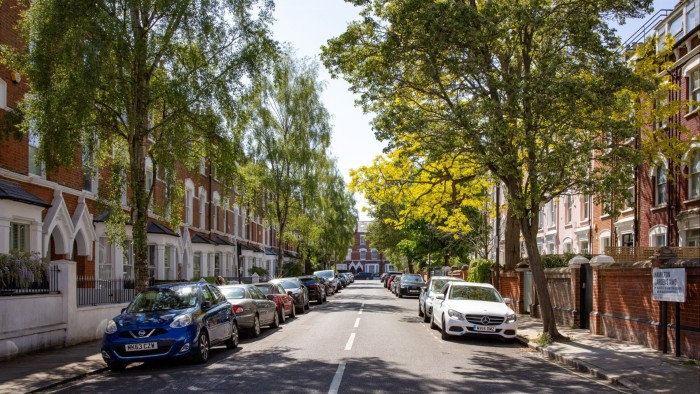Unlock the Editor’s Digest for free
Roula Khalaf, Editor of the FT, selects her favourite stories in this weekly newsletter.
Removing stamp duty would result in a “radical” overhaul of the UK’s housing market by allowing homeowners to move more easily — but some wealthier and older owners would be hit harder by a potential annual levy, industry experts have warned.
The Treasury is reportedly assessing ditching stamp duty — a transaction tax paid by buyers on properties valued at above £125,000. The government could look to replace it with an annual tax on homeowners, with properties worth more than £500,000 based on the value, according to property executives.
“Everyone agrees stamp duty is a bad tax that discourages people to move home,” said Richard Donnell, executive director at property website Zoopla. “The challenge is that it raises £10bn-£12bn a year, which is a large amount.”
He added that “getting rid of stamp duty would be radical and very welcome” as it would “support economic growth”.
But he warned that an annual property tax on homes over £500,000 would hit London and south-east of England hardest, while also penalising older people who have lived in their homes that have accrued in value over the years.
According to research by Zoopla, stamp duty receipts are skewed to London and the south-east, which accounted for about 60 per cent in 2023/24. Stamp duty is paid by four in five homeowners and two in five first-time buyers, the research found.
David Hollingworth of London & Country, a mortgage broker, said that stamp duty “is often criticised as acting as a barrier for buyers and movers”.
“To remove stamp duty would be radical but could bring more fluidity into the housing market and lead to more transactions, for first-time buyers and movers alike.
“However, if replaced with a tax on sellers rather than buyers, it could still act as a blocker. That’s especially true for those considering downsizing who can be put off by the costs of moving, preventing more family-sized homes being freed up in the market.”
Ray Boulger of mortgage broker John Charcol said that “as with all these ideas that the chancellor is floating, it’s difficult to know exactly what will happen”.
“When it comes to a potential annual property tax, it becomes in effect a south-east tax. There will be people who bought properties many years ago . . . so £500,000 will catch a lot of older people living in properties that are very valuable but who probably couldn’t afford an annual property tax.
“Once you get to a certain age, you don’t want to move because of the hassle. If you haven’t moved by the time you’re 80, you’re probably not going to want to move. So for older people who couldn’t afford an annual tax, government will have think about this.”
Nina Harrison, London executive at buying advisers Haringtons, said that the potential tax changes “are aimed squarely but definitely not fairly at the ‘rich’ in London and the South East as though absolutely no one else in the country has any money.
“London is obviously a wonderful place to live but it isn’t wealthy because money grows on trees here . . . the wealth is generated by hard work across all ages, sectors of society, and origin.”
Henry Pryor, a buying agent, said that “it would need to be introduced carefully so that those who have just bought and paid stamp duty didn’t have to pay the annual tax.” He noted that “there will be winners and losers, but it would be fairer and it wouldn’t corrupt the housing market”.
He added that an “annual property tax will hit higher-value homes harder, homes that are traditionally owned by wealthier, older people”.
Still, he said that people selling their higher-value properties “are likely to benefit from any removal of stamp duty”, adding that “it’s quite possible that owners of higher-value homes may see a measurable increase in the value of their home”.
The Treasury said: “The best way to strengthen public finances is by growing the economy — which is our focus.” It added that it was “committed to keeping taxes for working people as low as possible”.
Additional reporting by Emma Agyemang





3 Comments
xnimvg
bpxtt9
hpdsqh